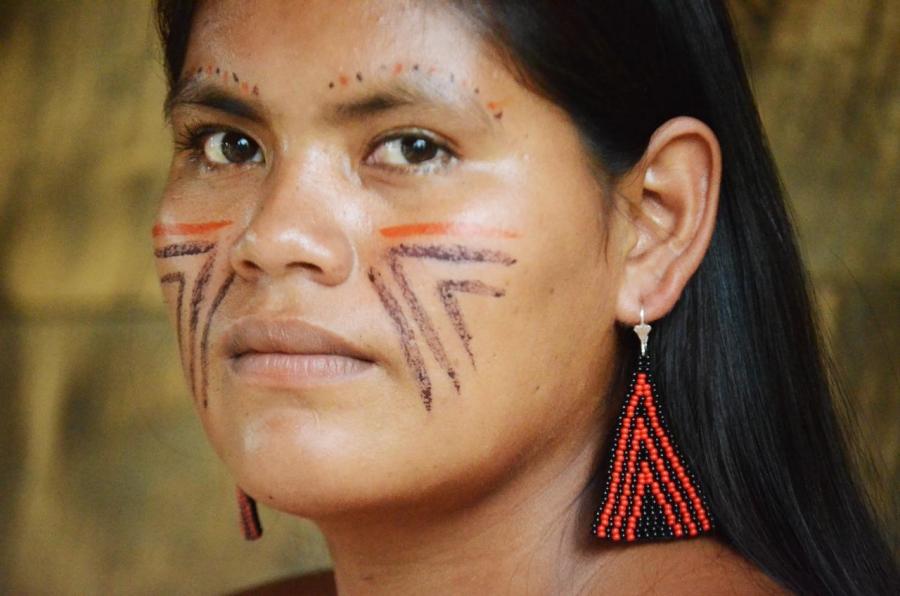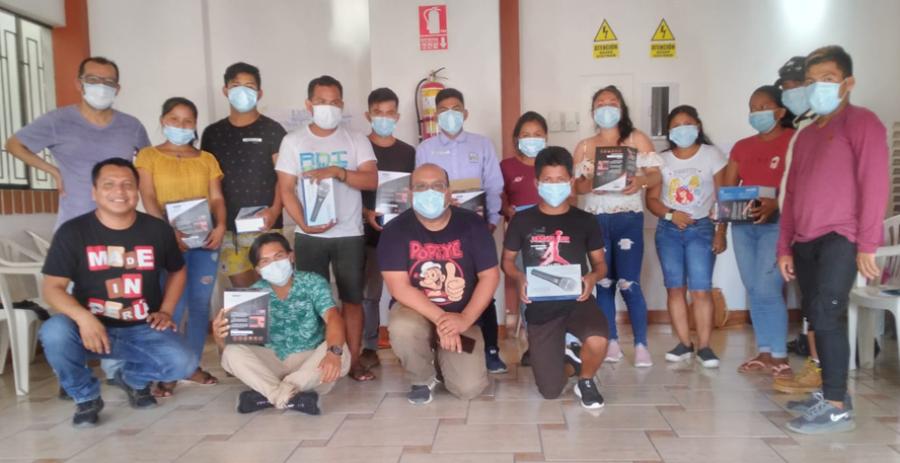Police and army officials have been sentenced by the Peruvian court for deaths and violence carried out in Bagua, Peru, against Indigenous protesters. The Indigenous Peoples at Bagua were protesting laws passed by President Alan Garcia's government that were to usher in an unprecedented wave of extractive industries into their territory in the Amazon rainforest. The peaceful protests turned ugly in May of 2009 when a state of emergency was declared. Police and army troops used violence against the Indigenous protesters on many occasions, cumulating in the Bagua massacre on June 9th, 2009, which left 10 protesters dead. In April of 2009, Global Response initiated a campaign in solidarity with the Indigenous people of the Peruvian Amazon, asking the government to rescind the development laws and stop the violence against protesters.
The officials involved in the court case were charged with dereliction of duty and given suspended sentences and small fines. With news of the sentencing, Servindi reported that many social groups and family members of those killed and wounded are criticizing the court for light-handedness, and consider the sentences of two police and one army official a means for scapegoating a few instead of bringing all of those truly responsible to justice. Many victims' families still have not received reparation for the events that took place.
See the following English language news report from the Latin American Herald Tribune
_____________________________________________________________________
March 18, 2011
A Peruvian military court handed down suspended prison sentences to three senior police and army officers in connection with the deaths of 24 cops and 10 civilians during June 2009 protests in the Amazonian town of Bagua.
What became known as the “Baguazo” was Peru’s deadliest confrontation in a decade.
Retired police Gens. Luis Murguruza and Javier Uribe and army Gen. Raul Silva Alban were convicted of dereliction of duty.
They received suspended prison sentences and were ordered to pay fines ranging from 4,000 soles ($1,428) to 10,000 soles ($3,571).
The Interethnic Association for the Development of the Peruvian Rainforest, or Aidesep, hailed the verdicts as confirmation that official misconduct can no longer be swept under the rug.
Aidesep was the main organizer of the 2009 protests in Bagua.
In a statement, Aidesep leader Alberto Pizango contrasted the action of the military court with President Alan Garcia’s decision to shield his Cabinet ministers from any accountability “for the regrettable events in Bagua.”
Though then-Premier Yehude Simon and the rest of the Cabinet resigned after the Baguazo, no member of the government has faced any judicial consequences.
Aidesep said Peru’s indigenous peoples are hoping that Garcia, who will leave office this summer, “has the valor to conclude his administration by cleansing the hands stained with blood.”
The events leading up to the Baguazo began in April 2009, when indigenous people opposed to laws – since repealed – giving Lima power to grant mining, logging and drilling concessions on Indian lands without consulting residents disrupted transport links and seized control of oil-industry installations, effectively shutting down a pipeline that carries crude oil from the Amazon interior to Peru’s northern coast.
Indians said the laws violated Peru’s commitment to international accords that require governments to consult with indigenous peoples about measures affecting their interests.
The dispute became violent on June 5, 2009, as police used force to evict the protesters from a key highway near Bagua.
Official figures indicated 24 police and 10 Indians died, but Aidesep said dozens of protesters were killed.


